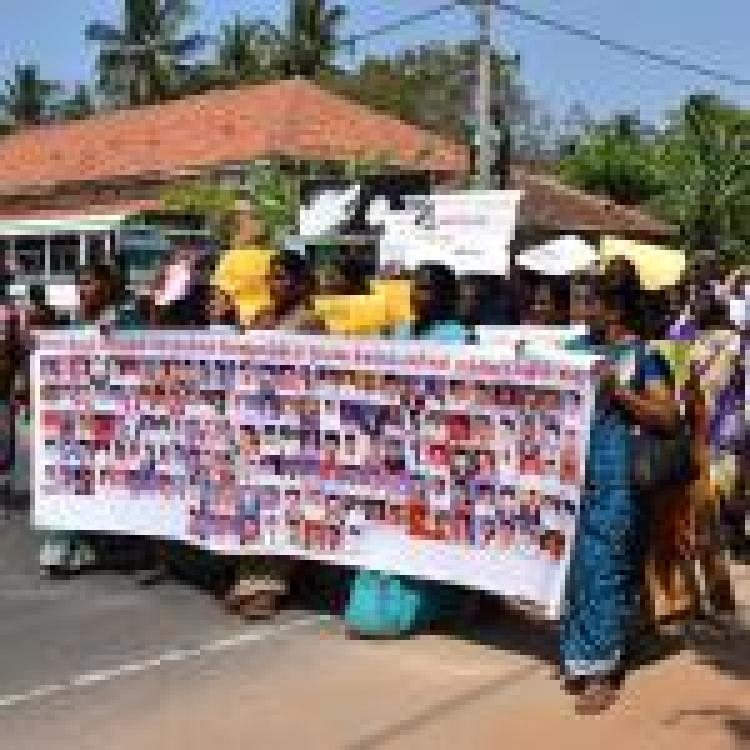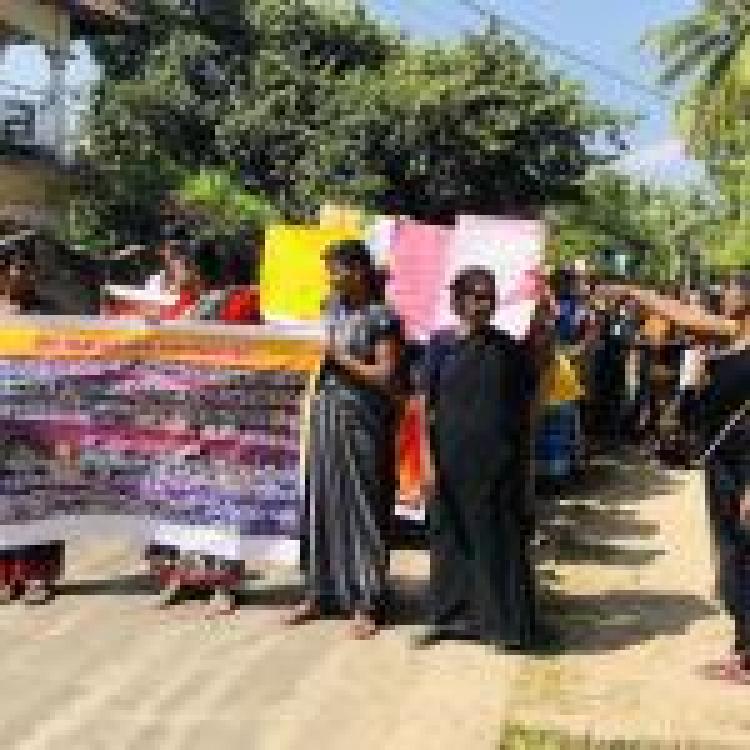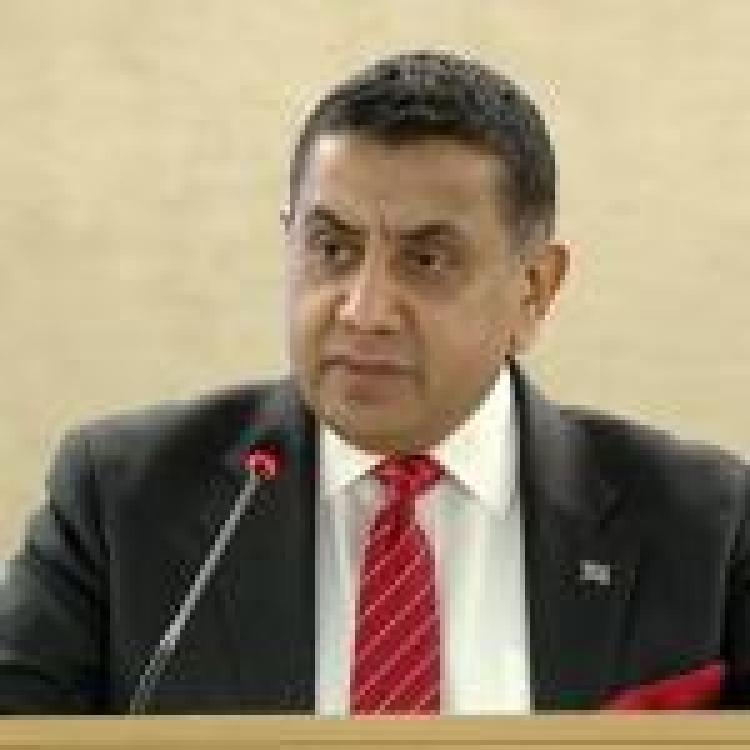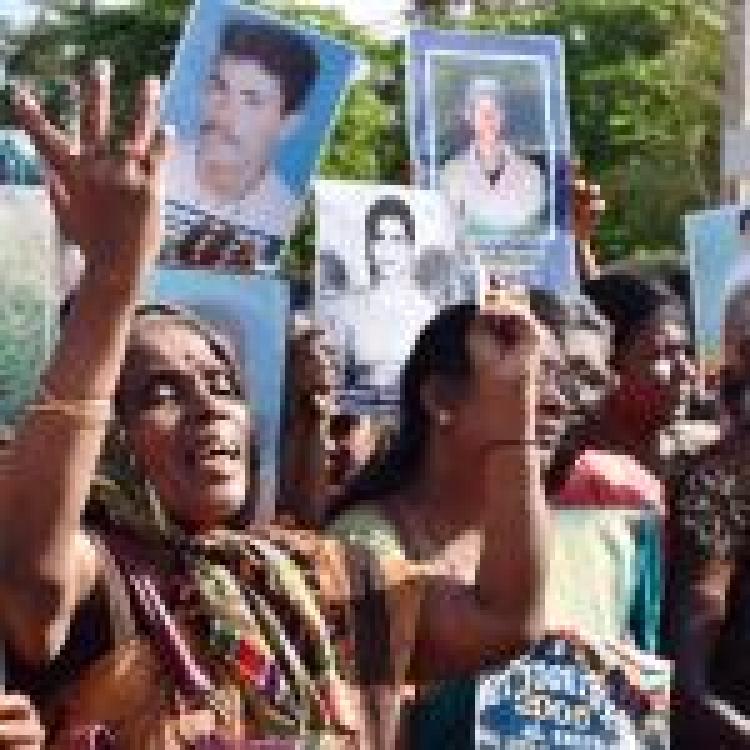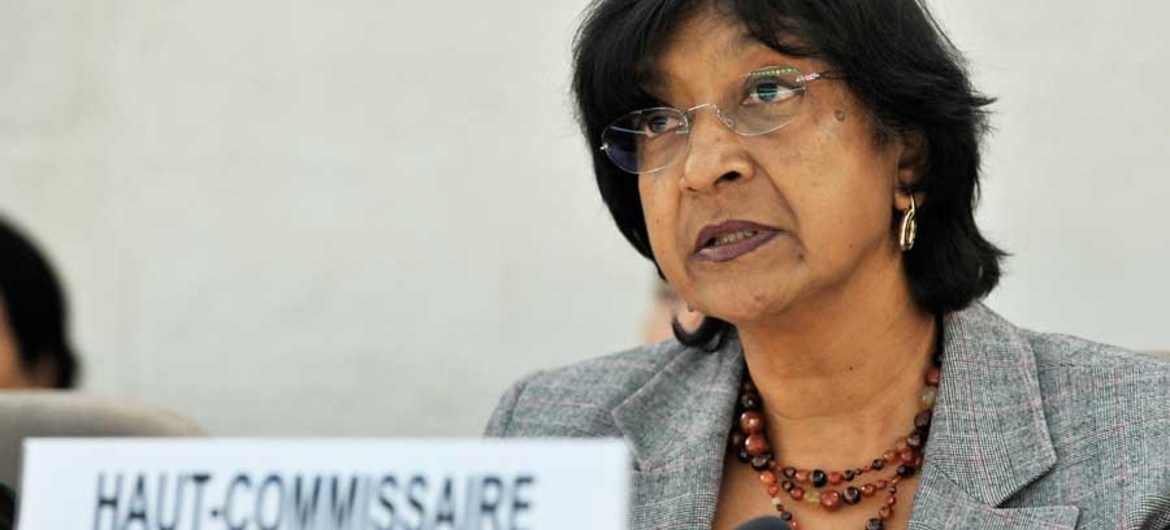
Photograph UN. 2011
The former UN High Commissioner for Human Rights, Navi Pillay this week criticised the Sri Lankan government's attempt to further delay the implementation of the co-sponsored UN Resolution 30/1 by talking of a 'truth and reconciliation commission' just days before the UN Human Rights Council was due to convene and review the resolution.
"I am disappointed to learn that on the eve of the interactive dialogue on the Office of the United Nations High Commissioner for Human Rights’(OHCHR) report on Sri Lanka in the UN Human Rights Council, the Government of Sri Lanka is resorting to yet another delaying tactic to escape......implementation of Resolution 30/1,” she told Ceylon Today.
Last month as Tamils across the North-East and diaspora called for Sri Lanka to be referred to the International Criminal Court (ICC) to ensure justice for the genocide of 2009, Sri Lanka's prime minister Ranil Wickremesinghe renewed talk of a truth and reconciliation commission.
“The key promises of justice and accountability are missing in the Prime Minister’s message," Pillay noted.
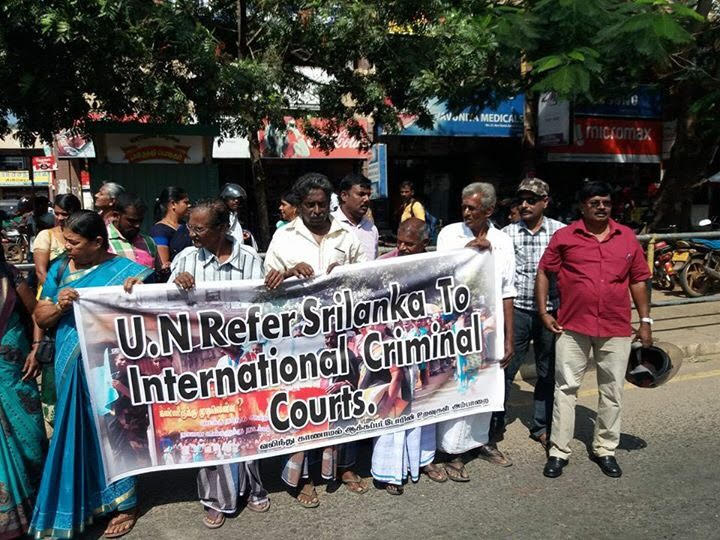
Families of the disappeared protesting in Vavuniya on January 31, 2019
Previous reports of such a commission were widely criticised by Tamil groups and human rights organisations.
The timing of Ranil's renewed proposal, which was put forward to the Cabinet last week, was viewed cynically by families of the disappeared who reiterated that nothing but an international mechanism of justice would suffice.
His comments were rejected by the leader of the Tamil National Alliance (TNA), R Sampanthan, who argued that "war crimes" committed could never be forgotten.
"We welcome the statement where he acknowledged the war crimes committed by the state armed forces. However, we totally reject his notion of forgetting and forgiving. We will never allow the idea of forgetting and forgiving to take root," Sampanthan said.
"Victims of the war crime committed by the armed forces are still living in Vanni. Hence, the affected, the killed, and the enforced disappeared need justice. Facts must be discerned through an international mechanism. Offenders should be punished. The government should allow this."
Read more: TNA leader - war crimes committed can never be forgotten
Ranil faced further criticism from Tamils after telling them to “forget the past and move forward” at an event in Kilinochchi.
“We have all been affected, let’s forget the past and move forward,” said Ranil Wickremesinghe at a meeting in the town, which was the former administrative capital of the LTTE. “There are ongoing court cases for some issues… We can’t go on filing cases.”
“That is how South Africa did,” Wickremesinghe further claimed. “They did not prosecute everyone.”
Read more: Sri Lankan PM faces backlash after telling Tamils to ‘forget the past’
His remarks were criticised by the Tamil National People’s Front and members of Tamil civil society, amid protests in the North-East calling for Sri Lanka to be referred to the International Criminal Court, a call that the International Commission of Jurists (ICJ) said was "fully warranted" given the Sri Lankan government’s failure to establish an accountability mechanism for violations of international law.
![]()
The resolution was due to be debated at the upcoming UNHRC session in Geneva next month following a two year extension granted in 2017. However, reports suggest the resolution will be rolled over again by another two years.
Tamil organisations across the North-East and diaspora have criticised reports Sri Lanka will be granted a further two years to implement the resolution, highlighting the state's long history of failure to provide justice for Tamils
Last month the former chief minister of the Northern Province, C V Wigneswaran also criticised any decision to grant Sri Lanka more time, arguing that nothing has been gained by extra time given so far.
"There is a need for the UN to take immediate actions regarding this, because nothing came out of giving time so far. They said that they will repeal Prevention of Terrorism Act but they haven’t done anything yet. If they won’t do a small thing like that, do you think they would fulfil the rest of it?"
"Giving time won’t bring anything to Tamils. It will only benefit the government."

